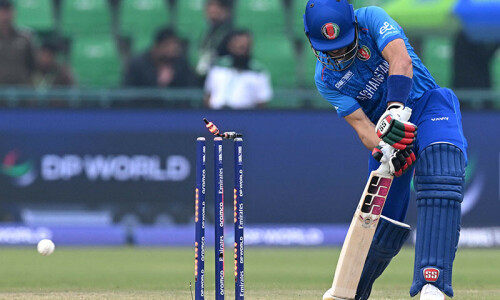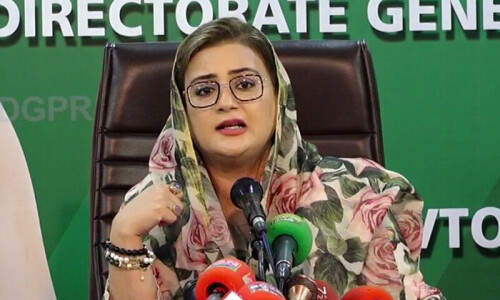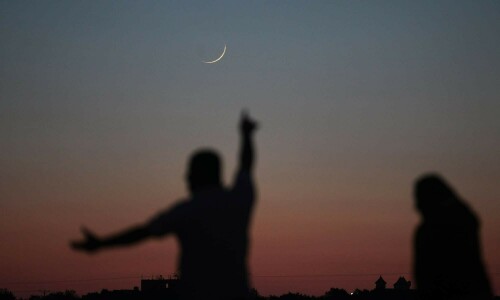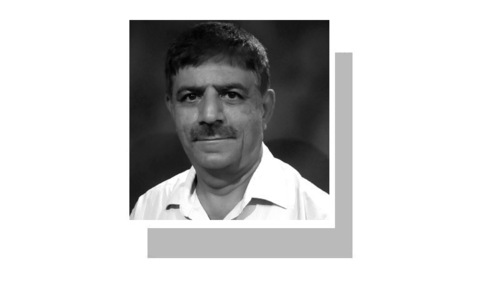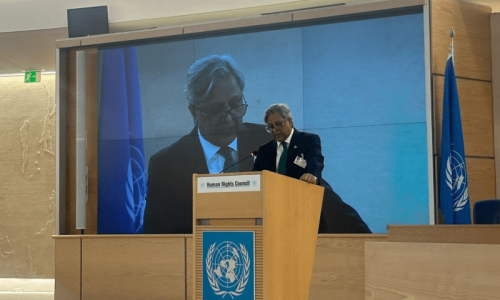KARACHI: The Sindh Human Rights Commission (SHRC) has in collaboration with Community World Service Asia held a consultation and awareness workshop on the Sindh Hindu Marriage Amendment Act-2016 here.
As not many may know, marriage registration for Hindus living in Pakistan was a big problem. In fact, before 2016, the Hindu population was deprived of marital rights, which were then granted to them through the Sindh Hindu Marriage Act.
Sindh holds the distinction of being the first and the only province to legislate on the issue followed by a similar law enacted by the National Assembly one year later.
Initially, this act addressed the registration process, while other issues related to solemnisation of marriage such as underage marriage, post-marriage rights or dissolution of marriage were legislated upon through amendments in 2018.
Efforts are ongoing to secure two per cent education quota for minorities
In her opening remarks, SHRC chairperson retired Justice Majida Razvi said: “SHRC is a statutory body established under Sindh Protection of Human Rights Act, 2011. It makes recommendations to the government on different human rights issues concerning life, liberty, dignity and equality.”
Registration of pandits still pending
Kishan Sharma, a member of the National Lobbying Delegation (NLD), provided an introduction of NLD and its activism for minority rights. He said that NLD and SHRC thought that they should sit together and have a dialogue on the Hindu marriage law as it was about personal laws.
“The re-marriage of a Hindu woman or her divorce are two topics that were initiated in the National Assembly but after the 18th Amendment many issues [fell under] a provincial mandate and the Sindh government passed the Sindh Hindu Marriage Act,” he reminded. But, he regretted, even after the passing of the act, the registration of pandits was still pending.
He also spoke about other issues affecting the minorities and said: “Job quota and its non compliance is a big issue here. But we lobbied for it. We are also lobbying for two per cent education quota for minorities.”
Rights activist Kapil Dev also showed through his presentation the prospects of the Sindh Hindu Marriage Amendment Act-2016 along with its genesis, prospects and implementation mechanism.
He said: “The issue of the lack of a Hindu personal law was first highlighted in the 1970s in parliament and it could not be formalised into a law due to opposition of Hindu parliamentarians. Then in 2011, the fourth National Commission on the Status of Women put forward the Hindu Marriage Bill-2011, but again it was held. The parliament attempted thrice to pass the Hindu Marriage Bill: 2008, 2011, and 2012. However, to no avail,” he said.
“The landmark 2014 Supreme Court judgement on the rights of religious minorities was followed by an order directing the government to enact a law within two weeks issuing instructions to Nadra [National Database and Registration Authority] to amend the rules to register Hindu marriages. Hence, issues regarding Hindus obtaining passports and CNICs were being taken into proper consideration. Then in 2016, Sindh passed Sindh Hindu Marriage Registration Act in fear of the credit for it going to the PML-N government at the federal level to have passed the Hindu Marriage Act for the entire country after three provinces passed a resolution of Article 144,” he said.
“In 2017, the Hindu Marriage Act-2017 marked a breakthrough as the first legislation dealing with personal law of Pakistani Hindus. In 2018, Sindh also passed the Sindh Hindu Marriage Amendment Act-2018 at par with legislation done at the federal level. In 2019, Sindh and Balochistan framed the rules of business for the implementation of the act(s), however, their implementation is still a huge challenge,” he said.
‘Community gap’
Sindh Commission on the Status of Women chairperson Nuzhat Shirin shared that the caste system within the Hindu community is also one of the biggest challenges as it is often observed that cases of girls from lower castes are not highlighted as much as those who are converted from upper castes such as Brahmins. “We have felt this community gap in so many cases,” she said.
She said that making laws in a rush won’t really help people for whom the laws have been made though it might bring in funding.
Kalpana Devi, one of the participants of the workshop, also said that the Sikhs in Punjab opposed the Hindu Marriage Act and a separate bill was passed for them.
Published in Dawn, July 1st, 2021


















